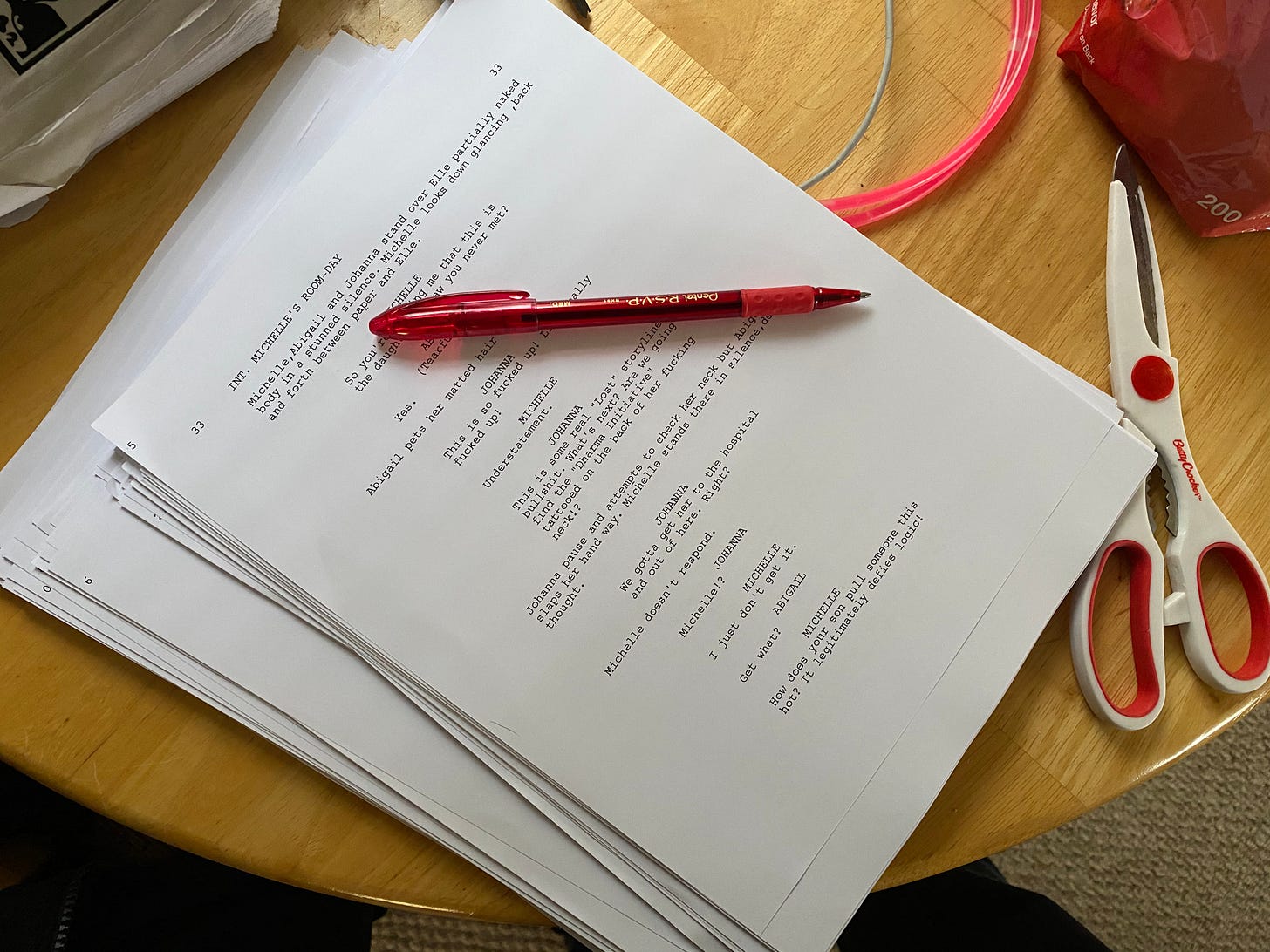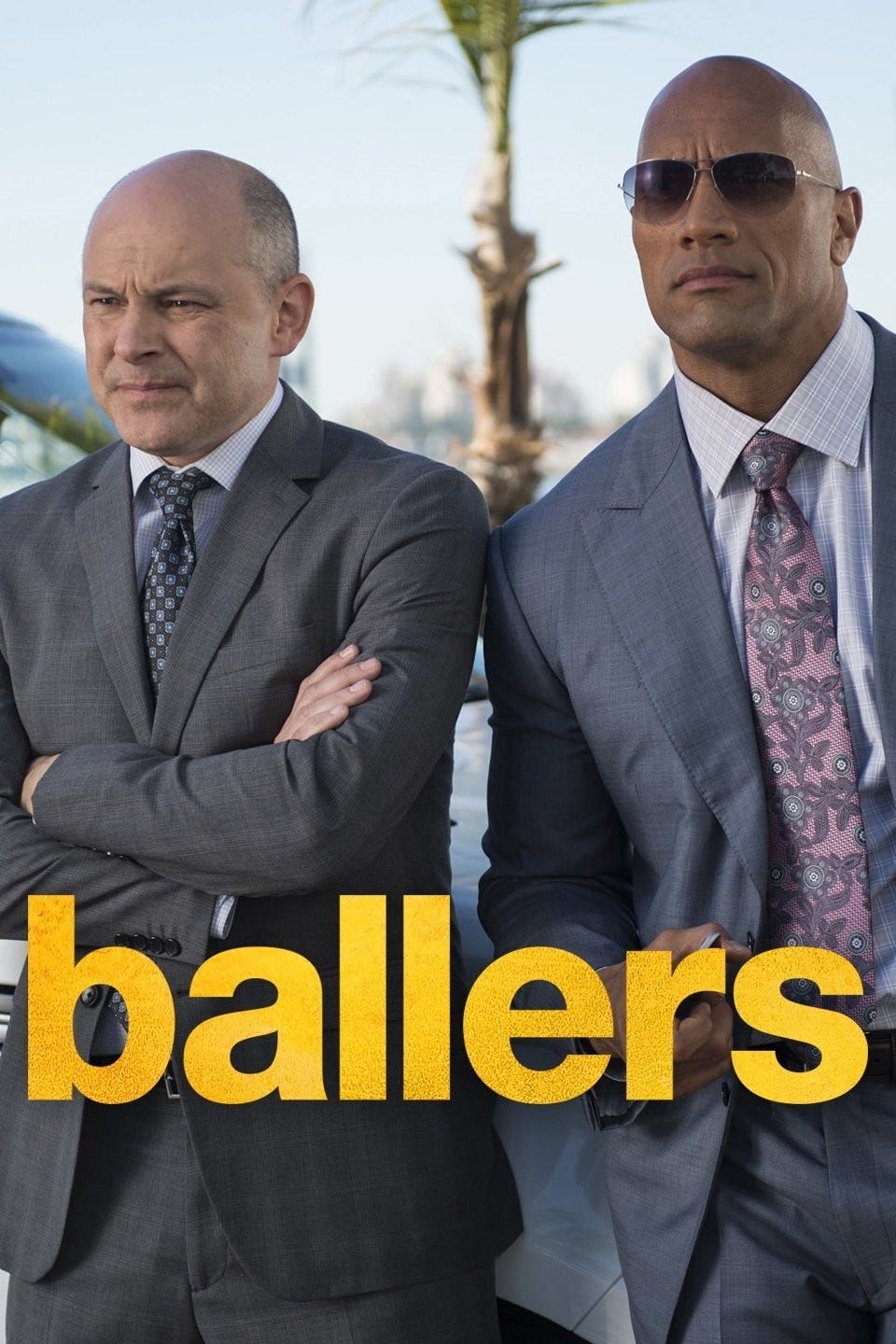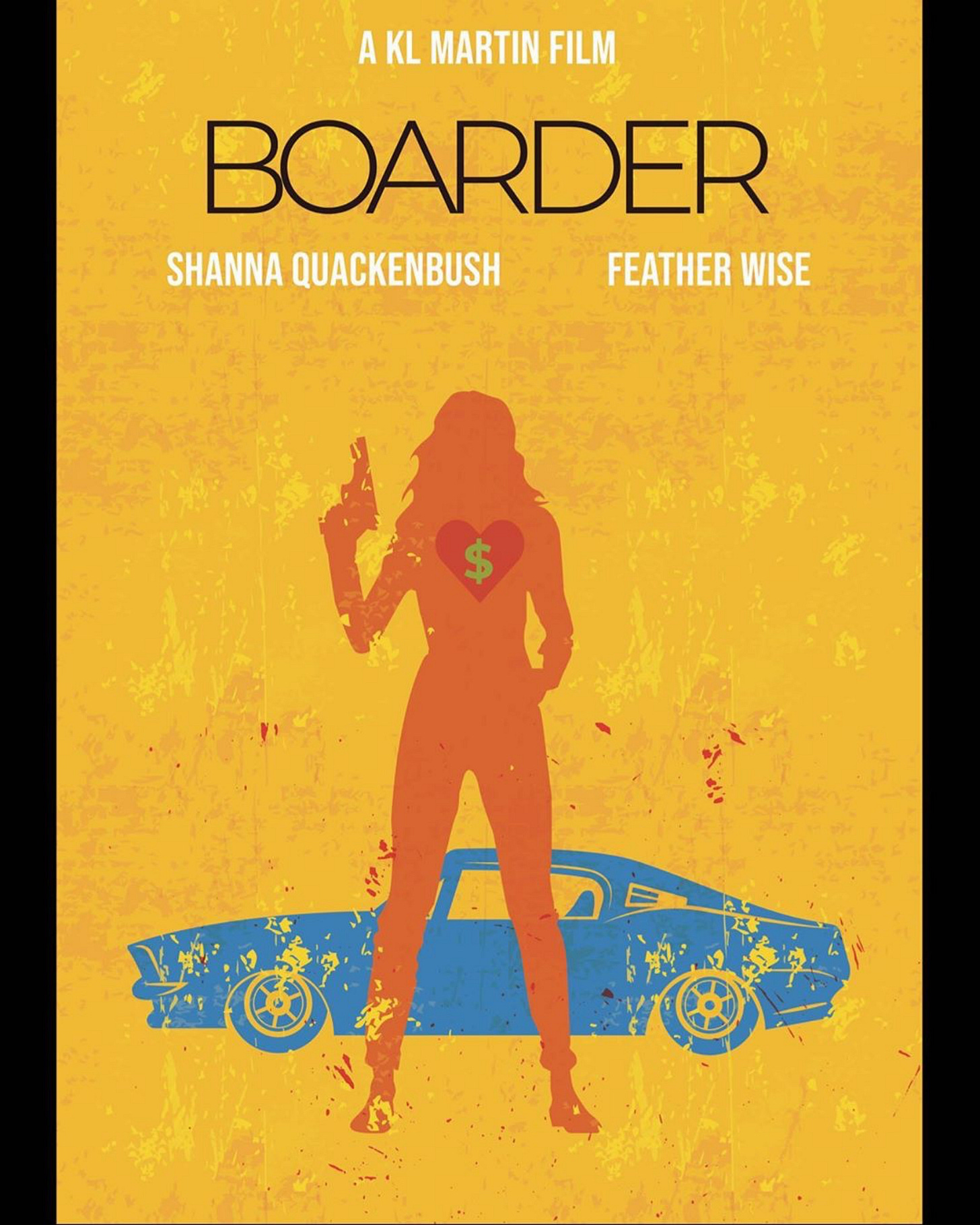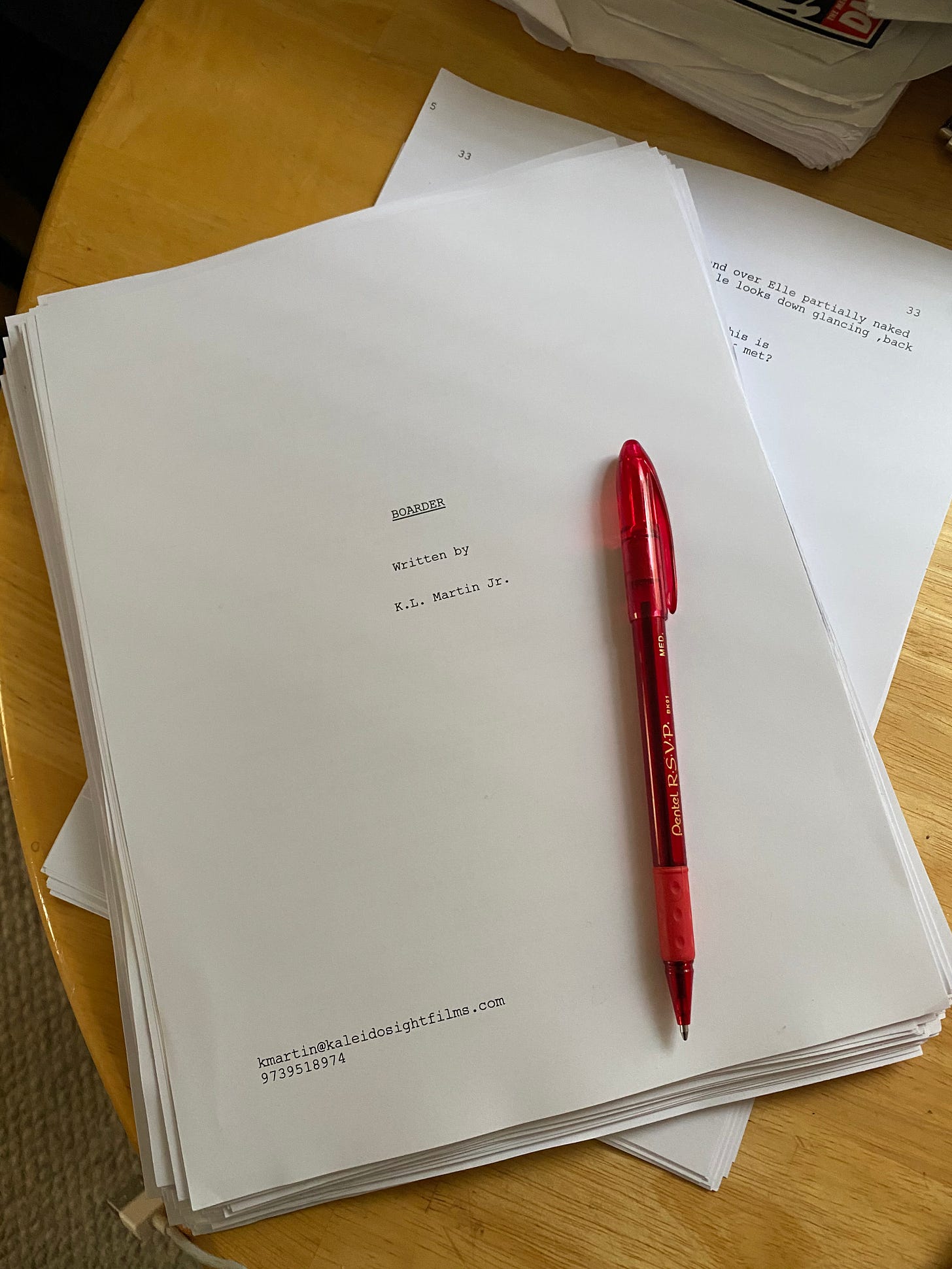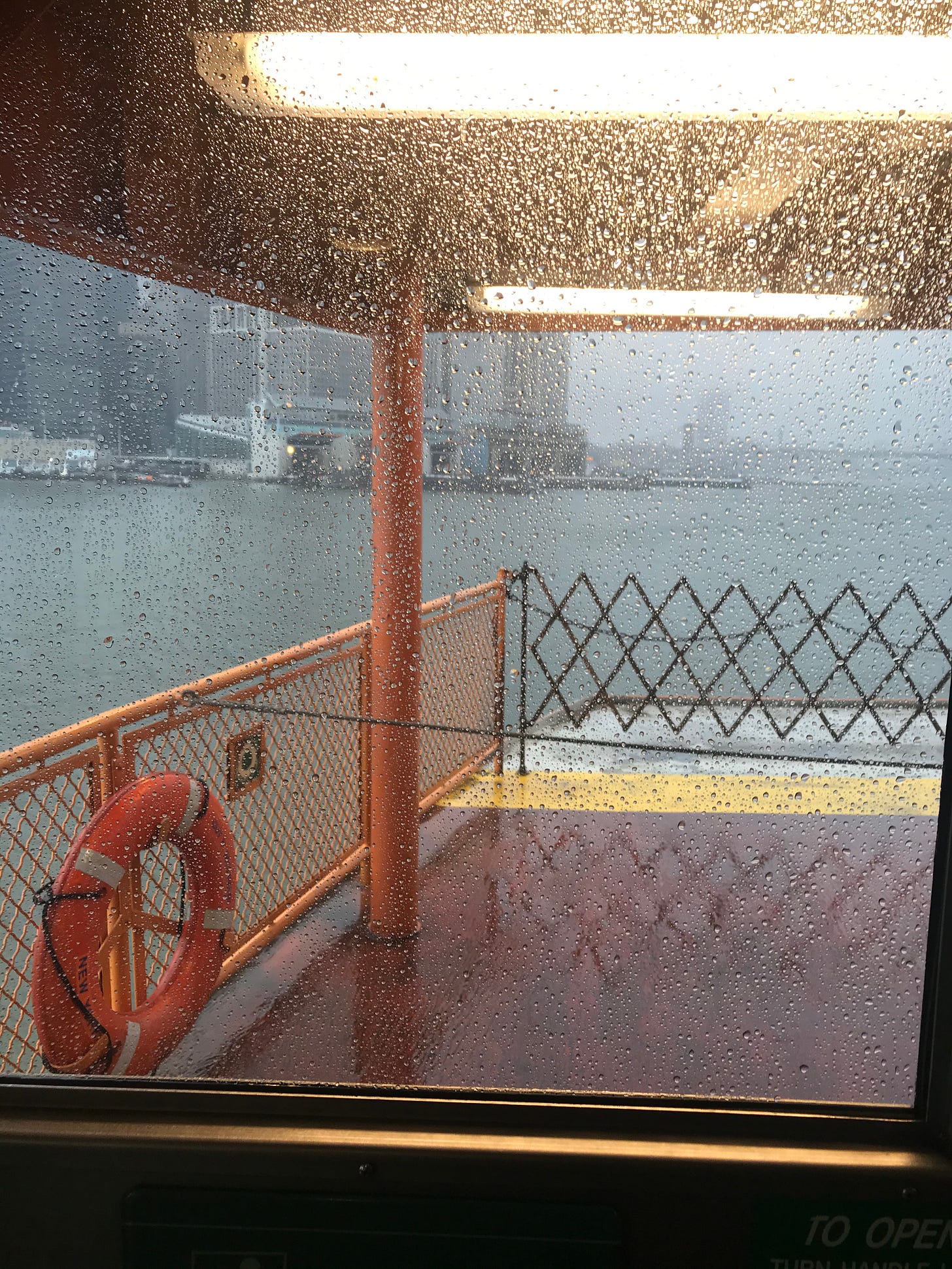Screenwriting With a View #26
If You Have Something Ready, Be Ready
One of the main things every screenwriter should understand—whether you’re brand new or well into your career—is preparation. We talk a lot about research: knowing your subject, understanding your world, doing the work whether the story is close to home or completely foreign. But there’s another kind of preparation that even seasoned professionals (myself included) can fumble.
Most of the advice I give nowadays comes from the mistakes I’ve made. And one of the biggest? Saying I was ready… when I wasn’t.
If you have something ready, be ready. Don’t say you’ve got a short film that’s a proof of concept if there’s no feature in sight. Don’t pitch a concept like you’ve got the script in your back pocket when you’ve got nothing but vibes. A short film is basically useless unless you’re aiming for an Oscar (and good luck with that) or you’ve got the feature version of that story locked and loaded.
I’ve learned this the hard way. A couple times, actually.
Most recently with You Should Smile More. I had the short ready. I had the vision. I was already shooting. But I didn’t have a feature version—just an idea. Luckily, I caught myself early and started writing it. I heard that little voice in my head saying, “You better have something to show when the right person asks.”
But this post isn’t about Smile More. It’s about Boarder—and how I almost blew it.
Back in 2017 or 2018, I was in Florida, working on Bloodline and Ballers as a location scout and manager. In between gigs, I wrote and directed a short called The Hit. Not the best acted piece in the world, but as a director, it was some of my best work to that point. It was built out of a summary for a feature idea I’d been kicking around for a while called Boarder.
The Short: THE HIT
The premise: a veteran hitwoman finds a safer, more lucrative gig—selling organs on the black market. Dark comedy. Think Repo Men meets John Wick. And buried under all of that was something deeper—she wasn’t just leaving her violent past behind in Chicago, she was leaving behind the name Michael. She was coming home as Michelle.
I did my research. Talked to my trans friends. Wanted to make sure if I was going to write that story, I did it with care. And back then, I hadn’t seen anything like it onscreen. It mattered to me. Still does.
So I’m at some festivals in Florida, networking, pitching this story to anyone who’d listen. Got into a long conversation at the Biltmore with an another location manager from Ballers who had started producing his own content. He liked what he heard. But here’s the truth—I had nothing. No feature. No treatment. Just a good short and an idea I could talk through in a voice memo.
Fast-forward a year later, I’m back in Jersey. Things are messy. My long-distance relationship ends. I’m crashing in my grandmother’s basement. Then out of nowhere, that producer calls. He’s drunk on South Beach and says, “I wanna make Boarder.” He’s locked up distribution, he’s got investors, and he wants this movie.
We set a meeting for the next month.
And I panic.
Next morning, I’m walking my dog, and it hits me: I don’t have a script. Not a page. Not a damn thing. I’d implied it existed. I never said those exact words, but I didn’t correct the assumption either. Now I’ve got 30 days to pull a full feature script out of thin air.
I’ve never written a feature that fast. Usually takes me 6-8 months minimum, sometimes longer. Because I do the work—I research, I outline, I obsess. It doesn’t hit Final Draft until I’ve lived in it long enough to believe in it.
But I couldn’t run from this. So I locked in. Holed up in Brooklyn with a girlfriend who worked in TV ad sales, during the upfront. I wrote like a man possessed. For 30 days, barely slept, ate like trash and came out the other side with a finished script.
We meet again at a sushi spot in the Financial District. Talk for two hours. Finally, he says, “Send me the script.” I do. And then? Nothing.
I get it. He becomes very highly sought and in fact without dropping names is an executive producer on the movie “Bros” and other LGBTQIA projects. He is very much in demand
From March to August: radio silence. But strangely, I started getting work. Rewrites. Coverage. TV pitches. People were excited about my association with him. Maybe he was pulling strings. Maybe not. Doesn’t matter. I got into another writers’ room. Got back on stage doing stand-up. My name started moving through the right circles.
Then August 2019—he calls again.
“Still in New York?”
“Yep.”
“Let’s meet.”
Same sushi spot. He says, “Kevin, I’m in.”
I played it cool. Got on the ferry. And had a full Will Smith ugly cry moment on the way back.
No bullshit this is the first picture I took post meeting.
We had a budget: $250K–$275K. Way under what we’d need for tax incentives in NJ, but enough to show real confidence. I cast the film. Hired the crew. Locked locations. Shot winter exteriors and B-roll in November and December 2019 to get that specific Jersey beach look—gray, bleak, beautiful.
Then 2020.
I got sick. My girlfriend (now wife, now mother of my kid) got sick. Our DP caught COVID in Portugal while visiting family during a break in filmingand couldn’t fly back. We pushed to March.
Then lockdown hit.
Our investors pulled out. Travel was impossible. Our lead actress moved to South America. The crew scattered. The movie died.
We paid everyone for the days they worked. But that was it. I’ve still got a hard drive full of footage. The feature script still exists. Every now and then someone asks about it. I won’t touch it unless real money is involved. The producer and I still talk. Still might bring Boarder back. But now? He’s rightfully hesitant. Climate’s different. Investors are jittery.
And that’s okay.
Because Boarder got me here. It jumpstarted connections that keep me working today. Introduced me to my wife. Got me involved with the New Jersey Film Commission. Made me a better screenwriter. A better director. Taught me what to do—and more importantly, what not to do.
So I’ll say it again: if you have something ready, be ready.
Don’t just make a short. Make sure you’ve got the full story behind it. Or at least a clear path to get there. That next question—“Is there a feature?”—will come. And you don’t want to get caught flat-footed when it does.
Because trust me… writing an entire feature in 30 days to cover your ass isn’t something I’d recommend.
Unless you absolutely have to.


